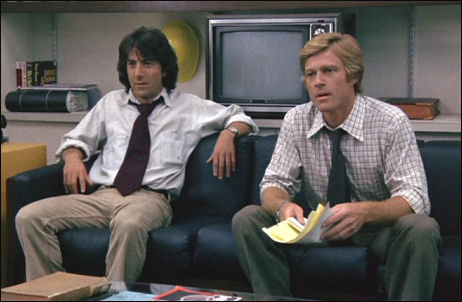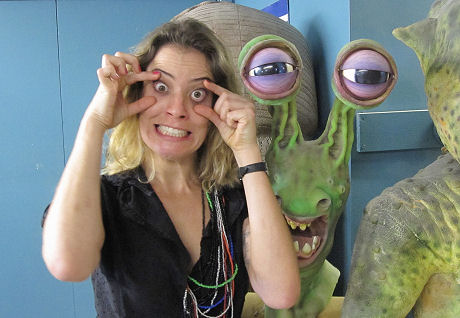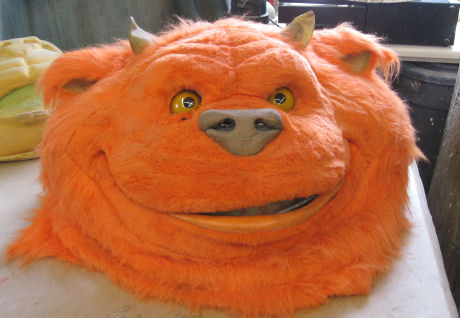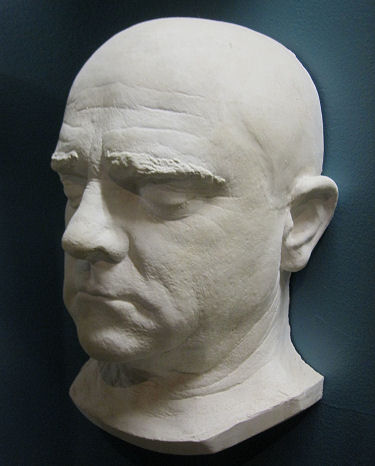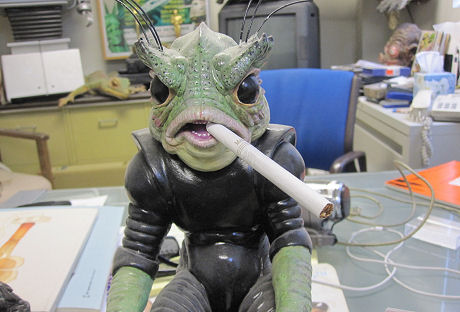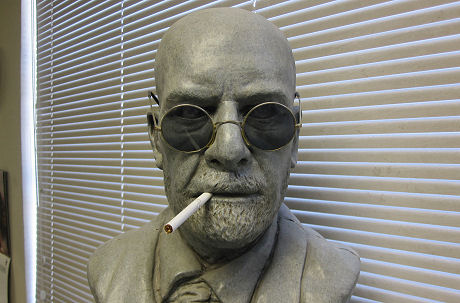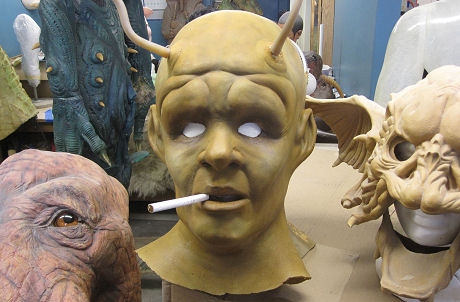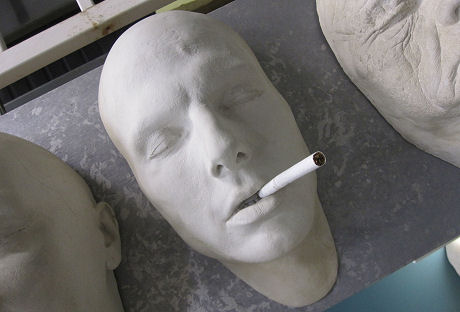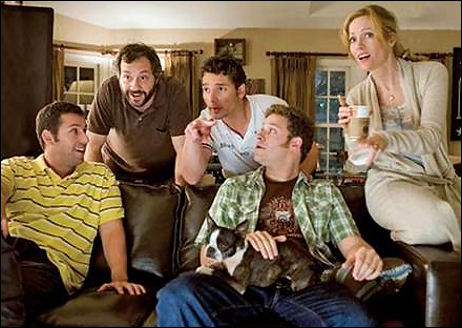Did a combination of Universal’s box-office losing streak, the huge critical success of The Hurt Locker plus NBC/Uni topper Jeff Zucker coming out strongly in favor of “easy-to-digest concepts and wish fulfillment” lead to the decision to bump Paul Greengrass‘s Green Zone into an early 2010 release?
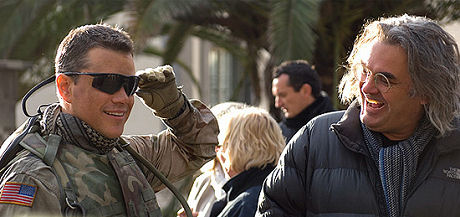 Matt Damon and Paul Greengrass during shooting of their Iraq War thriller
Matt Damon and Paul Greengrass during shooting of their Iraq War thriller Variety‘s Marc Graser is reporting that Green Zone, which was never given a firm ’09 release date but had been expected to compete as a fall/holiday awards season contender, will not open in ’09 but rather on March 12, 2010.
This is a personal heartbreaker, as (a) I’m a huge Greengrass fan, (b) I have a heroin-habit craving for any Iraq War movie, and (c) I had a particularly keen interest in this futile-search-for-WMDs thriller. Greengrass swore to L.A. Times reporter John Horn last January that Green Zone “is not a movie about Iraq [but] a strong, contemporary thriller that is set in Iraq. Thrillers thrive on extremity, and there is no more extreme environment than immediate post-invasion Baghdad.”
My theories about why Green Zone has been been ’86-ed out of ’09:
(a) Green Zone isn’t The Hurt Locker, which is to say it’s not as much a visceral, alls-out, pro-troops pulse-pounder as much as a viscerally shot (by Hurt Locker and United 93 lenser Barry Ackroyd) but essentially political minded quasi-downer about what a cock-up the American occupation was in ’03 and ’04.
I have Greengrass’s Green Zone script (before Brian Helgeland came in or a rewrite) but if the final result is at all faithful to Rajiv Chandrasekaran‘s book it’s almost a dramatic narrative version of Charles Ferguson‘s No End in Sight with the ludicrous incompetence of the American administrators in the early part of the Iraqi war and the pathetic errors of Iraqi Bush guy Paul Bremer as a backdrop.
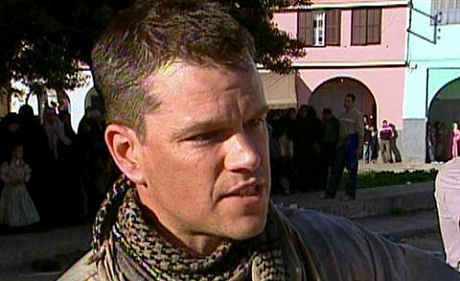 Damon plays Roy Miller, a warrant officer who helps a senior CIA officer in the search for the mythical “weapons of mass destruction” during the first several months of the Iraq occupation. Damon completed Green Zone before starring in Steven Soderbergh‘s The Informant!, which will play at the Toronto Film Festival.
Damon plays Roy Miller, a warrant officer who helps a senior CIA officer in the search for the mythical “weapons of mass destruction” during the first several months of the Iraq occupation. Damon completed Green Zone before starring in Steven Soderbergh‘s The Informant!, which will play at the Toronto Film Festival. (b) Universal has determined that out of the 10 Best Picture contenders, the Academy has room in its collective head for one Iraq War film, and the recipient of that largesse — The Hurt Locker — has already been decided upon. And that other award-dispensing groups will probably concur. So with award-season action looking limited and the film perhaps not looking all that commercial on its own terms, Universal has decided to punt.
(c) The reason for this is that Universal’s unfortunate losing streak has disemboldened management from taking any more chances of any kind. If Green Zone bombs or underperforms at the box-office it’ll just be another strike against them in an already gloomy box-office year. Plus it obviously doesn’t adhere to criteria recently urged by NBC-Uni honcho Jeff Zucker. “Easy-to-digest concepts and wish fulfillment is in vogue,” he wrote in a recent memo to Uni toppers. “That’s not our slate. And the choices have been too costly. You’ve got to fix both those things.”
Downside: March ’10 is eight months from now and the urgency/topicality of Iraq is losing sand by the week with Obama pulling the troops out. Doesn’t it make sense to get Green Zone out while it’s still semi-relevant? By next year Iraq will be even further back in the public mind.”
Bottom line? Green Zone should have been greenlit and shot earlier. If it had come out last fall, bingo. But this was a bad Universal year, history is turning the page and people are disengaging on a Bush-era catastrophe.
Note: Thanks to The Playlist for highlighting the Green Zone aspect of Graser’s story. The Green Zone news is buried inside a delayed Wolf Man story that wasn’t even on the front page this morning.



